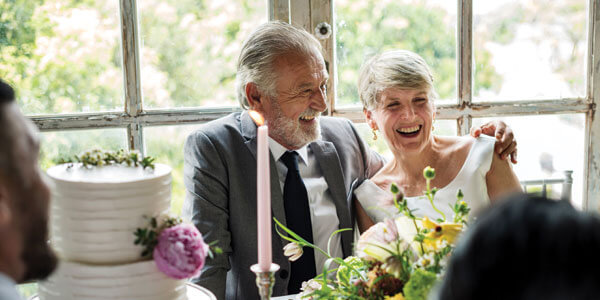2169 East Rutland Lane, Martinsville, IN 46151
Corporate NMLS #1025894
February 14th, 2022
Sinatra was right, the two of you agree, as, in your early seventies, you plan your wedding. You’re both retired from professional careers; each of you has managed pretty well financially on a combination of Social Security, pension, and investment income.
Although your courtship began almost five years ago, you’ve recently decided to tie the knot, with a plan to maintain the finances using a his/hers/ours system, with each of you contributing monthly to a joint “pot” for everyday expenses and travel, and each maintaining separate ownership and control of your investment accounts.
One concern is how to combine households – you each own a paid-for home that has appreciated significantly in value. Selling either would generate a large capital gains tax, you fear, and you would also need to work out the best way to share the costs of remodeling the house in which you choose to reside. Looking ahead, you want assurance that when the first of you dies, the survivor can remain in the home for the rest of his or her life. At the same time, you want to treat both sets of adult children fairly inheritance-wise.
A tax advisor can offer guidance; an estate planning attorney can draft documents advice tailored to your situation. Generally speaking, when one of your two homes is sold, the owner should owe no capital gains tax on the first $250,000 of profit. One strategy might be to take out a reverse mortgage on the home in which you decide to live, tapping the equity to fund the renovations. If the two of you are married by the time the owner applies for the reverse mortgage, the non-owner survivor would have the right to remain in the home after the borrower dies.
While combining two households and two lives is hardly without complexity, as Frank Sinatra would agree, both love and home ownership can be lovelier the second time around.

